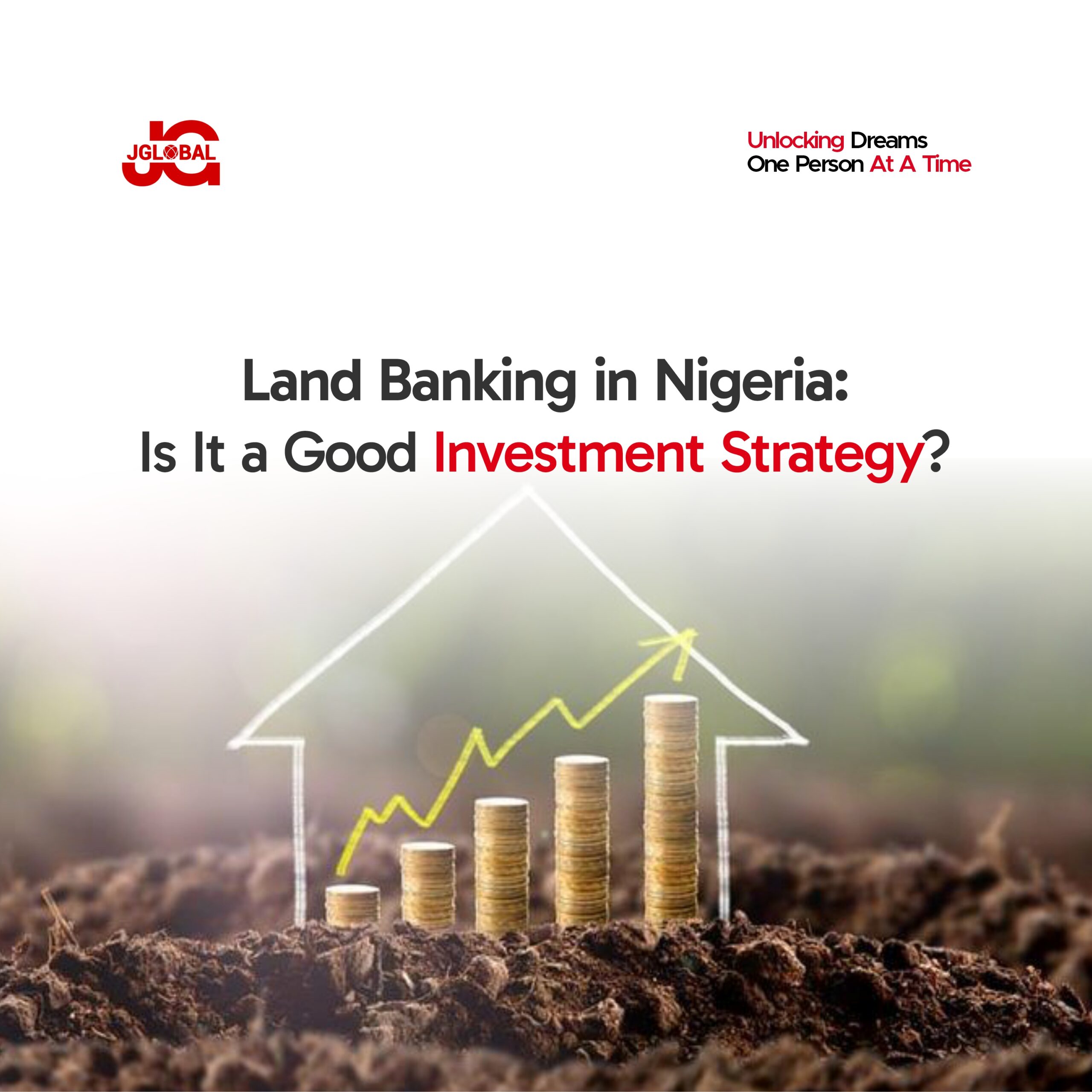LAND BANKING: IS IT A GOOD INVESTMENT STRATEGY?

INTRODUCTION
Did you know that 90-95% of billionaires today have used land banking as a key investment strategy?
This includes many Nigerian billionaires who have built their wealth through land investments. For example, business magnates like Stephen Akintayo, Mike Adenuga, and Femi Otedola have all leveraged land banking to accumulate wealth.
If you’re looking to start land banking in Nigeria, consider places like Epe, which offers affordable land options with high potential for appreciation. Other areas like Ibeju-Lekki, Ikorodu, Ibadan, Asaba, Awka, Aba are also promising for land banking.
WHAT IS LAND BANKING?
Land banking is the practice of acquiring and holding parcels of land with the expectation that its value will increase over time.
This strategy involves purchasing land that is not immediately needed for development but has potential for future appreciation, with the aim of making profits.
IN OTHER WORDS,
Land banking involves buying and holding land in emerging areas for future development or resale. It’s a long-term investment strategy that requires patience and careful planning.
Let’s discuss the advantages and disadvantages of Land banking to help you make informed decisions.
ADVANTAGES OF LAND BANKING
- Land banking has the potential for significant long-term appreciation. This means that the value of the land can increase substantially over time, making it a valuable investment. Unlike other investments that may fluctuate in value, land tends to appreciate in value as the years pass, making it a stable and secure investment.
- Land banking requires low capital entry. As an attractive option for real estate investment it requires relatively low capital entry. This makes it accessible to individuals who are just starting to build their investment portfolios. And, with the right strategy, land banking can generate significant returns over time.
- Land banking provides an opportunity to influence future development. By owning land, you have a say in how it is used and developed, which can be a powerful tool for shaping the future. Whether you choose to develop the land yourself or sell it to someone else, you have the power to influence what happens to it.
- Land Banking allows you to preserve your wealth in a tangible asset. Land is a physical asset that you can see and touch. This makes land a more secure and reliable investment, as its value is not subject to market fluctuations.
- Land banking provides a potential source of passive income through leasing. If you choose to lease your land to others, you earn a regular income without having to actively work for it. This is a great way to generate additional income and make Your Investment Work for You.
DISADVANTAGES OF LAND BANKING
The major disadvantage of land banking is the risk of land disputes or title issues. Sometimes, there may be confusion over who owns the land or disputes between families or communities. This can lead to costly legal battles and even render the land unusable.
Land banking is also vulnerable to regulatory changes. The government may introduce new laws or policies that affect how land can be used or developed, which can impact its value. For example, if the government decides to build a highway or Bridge through your land, its value may decrease or increase significantly.
To avoid this, it’s important to hire a professional surveyor and lawyer to verify the land’s authenticity. They will ensure that the land is free from any government plans or disputes that could affect its value in the future.
By employing a professional surveyor and lawyer, you can avoid pitfalls and ensure that your land investment is secure and profitable in the long run.
HOW DOES LAND BANKING WORK?
Land Banking has its own unique features. The rapid urbanization and growing population of Nigeria creates a high demand for land, making it a valuable resource. This demand can drive up land prices, making land banking an attractive option for investors.
Government policies and infrastructure development also play a significant role in land banking in Nigeria. When the government announces new projects or infrastructure development, land values in those areas can increase significantly. This can lead to higher returns on investment for land bankers in those areas.
Land banking is a popular investment strategy in Nigeria, used by both individuals and companies. By understanding the unique characteristics of land banking in Nigeria, investors can make informed decisions and potentially reap the benefits of this investment opportunity.
CONCLUSION
Land banking is a great investment, with potential for high returns through value appreciation. Government projects and policies can increase land value and demand. Plus, you don’t need a lot of money to start investing in land banking, making it accessible to those on a budget.


